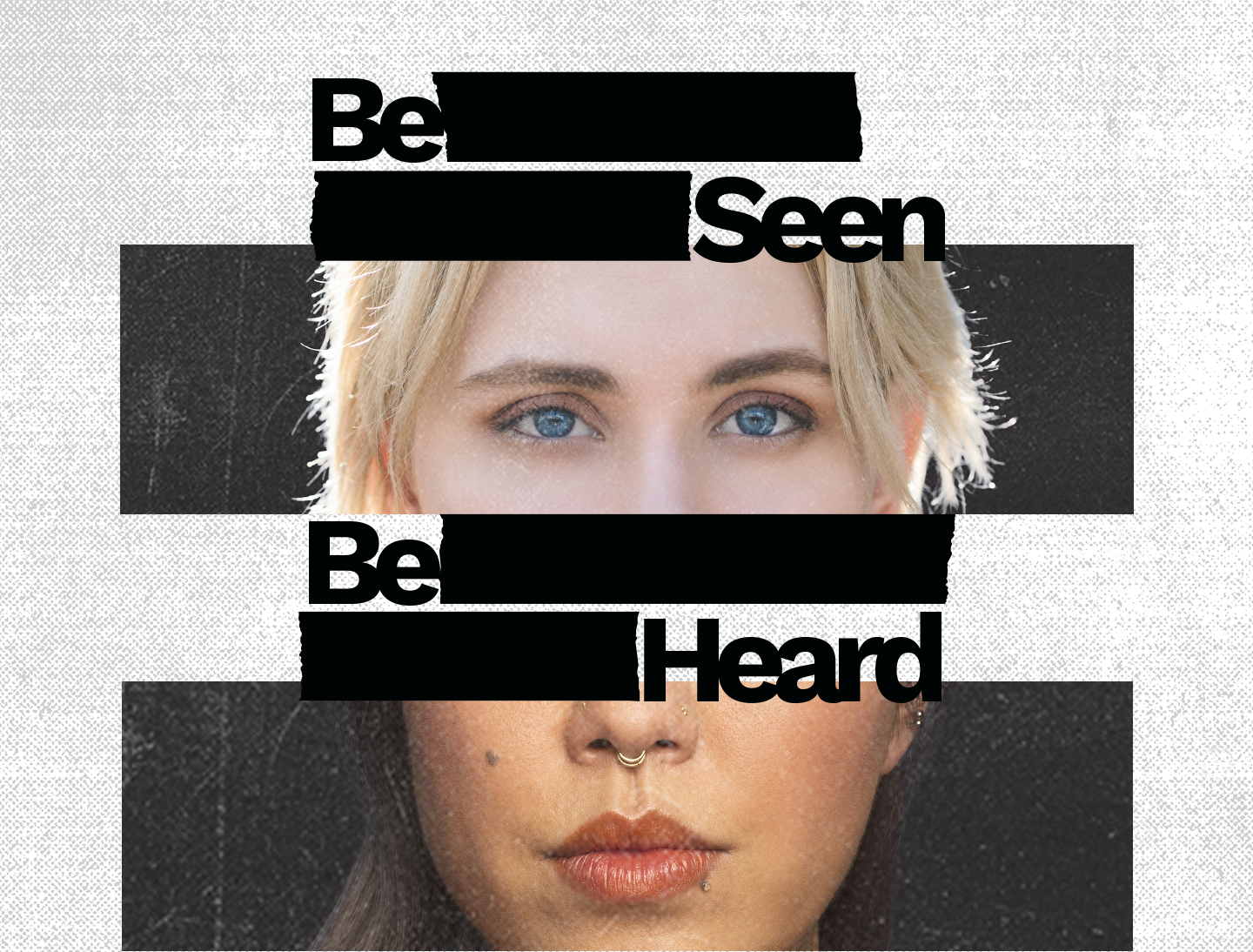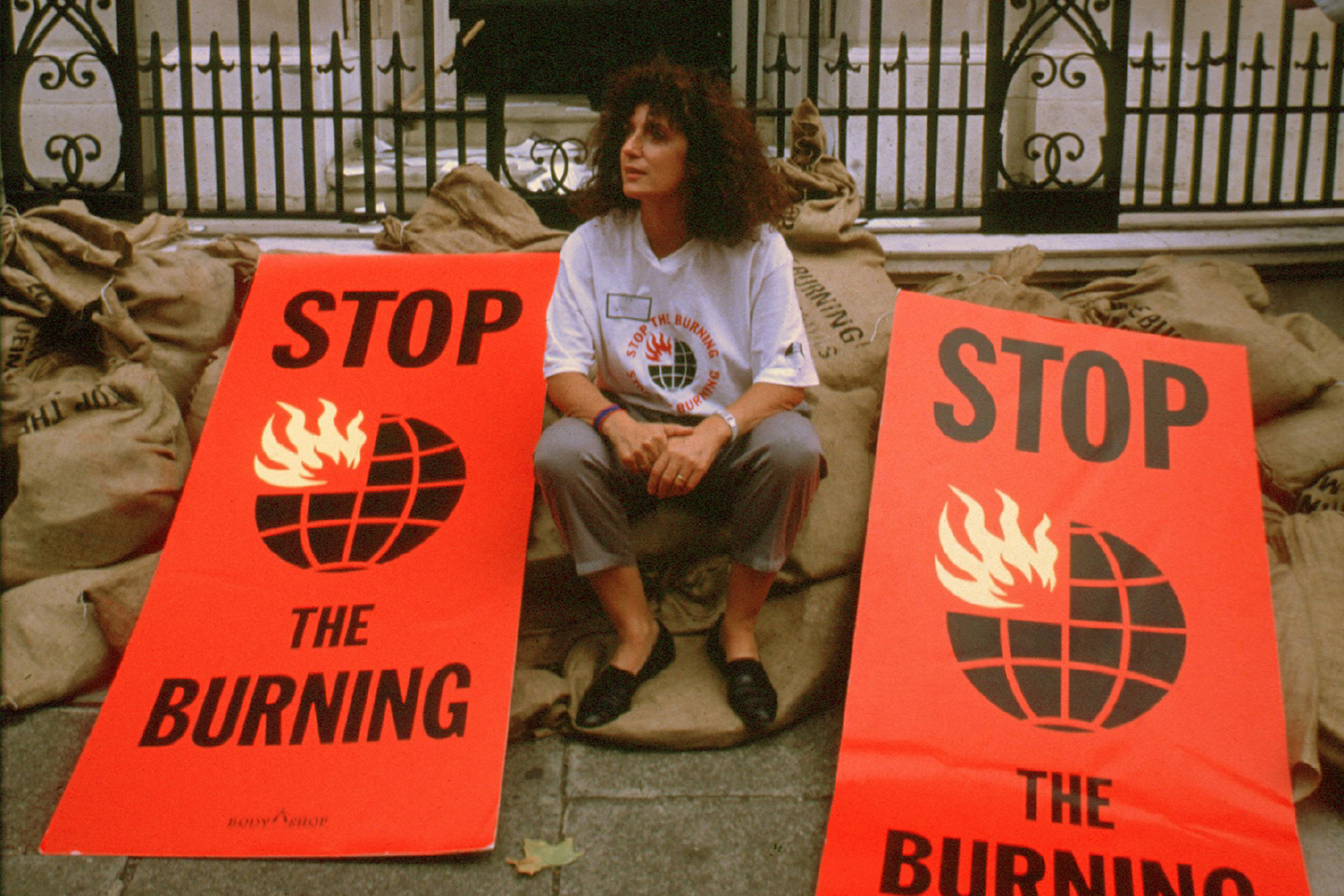YOUNG PEOPLE CAN’T BE TRUSTED
WHY WE NEED TO STOP UNDERESTIMATING THEM
As the planet gets warmer and the gap between rich and poor gets wider, the people turning up to vote in elections are getting older. At the same time, approximately 1 in 6 people on Earth are aged between 15 and 24. When young people are asked, 75% of them think the future is ‘frightening’.
Young people are often dismissed when it comes to important public decisions, but we believe they have a vital role to play in the decisions that affect us all. They’ll be the ones living with the consequences after all. Read on to discover why we need to start believing in them and why we definitely shouldn’t underestimate them.
Young people don’t feel represented, because they aren’t. Time and time again, politicians in grey suits play it safe – they return to the same slogans and dredge up the same tired policies. So young people don’t show up to the polls. Resentment between the generations builds. Round and round we go, possibly for decades as our political culture feels stuck. Meanwhile, the world’s festering pile of urgent problems gets bigger.
We’ve thought of a better way. There has never been a more critical time for generations to join forces. When they do, it’s going to be epic and we’re pretty sure it’s going to be fun. We have no doubt that, working together, we’ll get stuff done. But if it’s going to work, young people need a voice. It’s up to us to give them one.
Read more
Young people don’t feel represented, because they aren’t. Time and time again, politicians in grey suits play it safe – they return to the same slogans and dredge up the same tired policies. So young people don’t show up to the polls. Resentment between the generations builds. Round and round we go, possibly for decades as our political culture feels stuck. Meanwhile, the world’s festering pile of urgent problems gets bigger.
We’ve thought of a better way. There has never been a more critical time for generations to join forces. When they do, it’s going to be epic and we’re pretty sure it’s going to be fun. We have no doubt that, working together, we’ll get stuff done. But if it’s going to work, young people need a voice. It’s up to us to give them one.
Read more
BUT THERE'S A PROBLEM
Plenty of people, including some young people, think we’re wrong. They claim young people aren’t mature enough to be included. That their ‘brains aren’t developed enough.’ ‘Young people can’t be trusted’; ‘They won’t turn up’, ‘they aren’t serious enough’, they say. We’ve heard these arguments before. Believe it or not, people were giving the very same reasons to deny women the vote over 100 years ago.
At the forefront of every single important social justice movement there’s always been a chorus of naysayers and ‘what if’ people bringing up the rear who are wedded to the status quo. It’s very easy to be cynical about things that haven’t happened yet, but we know that no amount of raised eyebrows or eye-rolling is going to fix the world’s problems. We need to think outside the box.
THEY SAY: ‘YOUNG PEOPLE AREN’T RESPONSIBLE ENOUGH’
We say: Responsible enough for what? Young people around the world have all kinds of serious obligations. Every day, millions of them contribute to the system and are treated by society as adults and relied upon by loved ones. They often work hard, they pay taxes. Some young people become carers for vulnerable or younger or older family members. Some are paying into the household income, or even joining the military. Not exactly footloose and fancy free.
On the flipside, if young people don’t play by society’s rules, they pay for it. In some countries it’s considered acceptable to punish children for crimes many years before they can legally vote. In the UK, Australia, Switzerland, Singapore, New Zealand, Ireland and Hong Kong the age of criminal responsibility is 10. In the US, where it’s decided state by state, the oldest age is 12 and the youngest age is 6.
THEY SAY: ‘YOUNG PEOPLE AREN’T INTERESTED IN POLITICS’
We say: People argue that young people are not interested in politics, but this is a bit of a chicken and egg problem. They do have a point. Youth participation in formal politics is far from perfect. Political party membership is declining and there is lower voter turnout in young voter groups. But when the average age of a parliamentarian worldwide is 53 can we blame them for not feeling part of the conversation?
It would be much easier for cynics to accuse young people of apathy if they weren’t popping up elsewhere, rallying together, shouting down megaphones about issues they care about. Young people have demonstrated they can be passionate, engaged advocates. They have collaborated worldwide to show up for the planet, their communities and the most vulnerable in society. They might work in different ways, connecting online and outside of formal channels, but they are full of creative solutions to society’s problems. Still, the politicians aren’t listening.
THEY SAY: ‘YOUNG PEOPLE ARE TOO EASILY INFLUENCED’
We say: A classic defence of keeping the voting age is to second guess how impressionable young people are. People often argue that young people would only vote the same way as their parents. During the women’s suffrage movement, critics said it would be pointless to give women the vote because they would just do what their husbands said. Thankfully this was found to be utter rubbish. Women proved themselves just as capable of making their own choices as men, often voting differently from their husbands.
It’s pretty hard to categorically determine (we don’t have the data yet) but it’s worth asking, how do adults decide to vote? Are they really more discerning? Political scientists have found that adults can be tribal. Peer pressure, identity and loyalty rather than policy all play a huge role in adult voting behaviour. Are young people really more likely than adults to be influenced by their neighbours, the newspapers they read or the company they keep?
Obviously young people have different cultural influences to adults. They might like different celebrities and music, but that doesn’t mean they are more superficial voters. That said, adults can be pretty shallow themselves. Researchers have found that adult voters can be swayed by a candidate’s good-looks or voice pitch and even how much they look like them.
THEY SAY: ‘YOUNG PEOPLE AREN’T INFORMED ENOUGH’
We say: Democracy isn’t supposed to be conditional. We don’t deny people a right to vote because of the colour of their skin. We don’t take voting rights away from people who aren’t clever or rich enough. If you live in a society, you have a say, it’s what is called ‘universal suffrage.’ That is, except if you are young. Denying 16 and 17 year olds a vote makes them the largest identity group in the world to be excluded from democracy.
Even if we all agreed it was fine to discriminate against voters on the basis of their education, young people wouldn’t be the most obvious group to choose. Lots of them are in education, surrounded by resources to help them weigh up the facts. They are also regularly tested on their knowledge about how society works - and they have been proven capable of making measured decisions. One study of 16 and 17 year olds voters found that the quality of their choices is similar to that of adults.
Discriminating on the basis of age or competency would mean it should also be acceptable to take a vote away. Would we feel comfortable taking votes away from the elderly once they reached some arbitrary cut-off age? Precisely.
Younger voters turn up too, as seen in Scotland, Norway and Austria. Voting is a social act and a habit. Young people who live at home are more likely to show up than young people who have left home. It’s also been found that votes for 16 year olds can create a ‘trickle up effect’ meaning older family members are more likely to vote.
For political systems to work for everyone, those making the decisions need to reflect the diversity of the communities they represent. When systems are inclusive, people participate. That means we have to look at removing some of the barriers that handicap young people in the first place, such as the minimum candidacy age or minimum campaign fund thresholds required to run for public office.
We know that young people who show up for their communities become more active, engaged citizens. They see with their own eyes what communities need and start thinking about how to fix those problems. If it's change we want, we’re going to need players in the team with all kinds of skills. We’ll need community leaders, creative business brains and bright politicians in training. As the saying goes, ‘You can’t be what you can’t see’ - so we must give young people the educational opportunities that will make them the leaders of tomorrow.
Participation in community decision-making is one of the most precious things we can do to change the fabric of society. So do you want to sit around with the cynics shrugging your shoulders for another ten years? Do you really want to tell young people they don’t deserve a voice? OR do you want to be part of the change and join us in backing them all the way?




